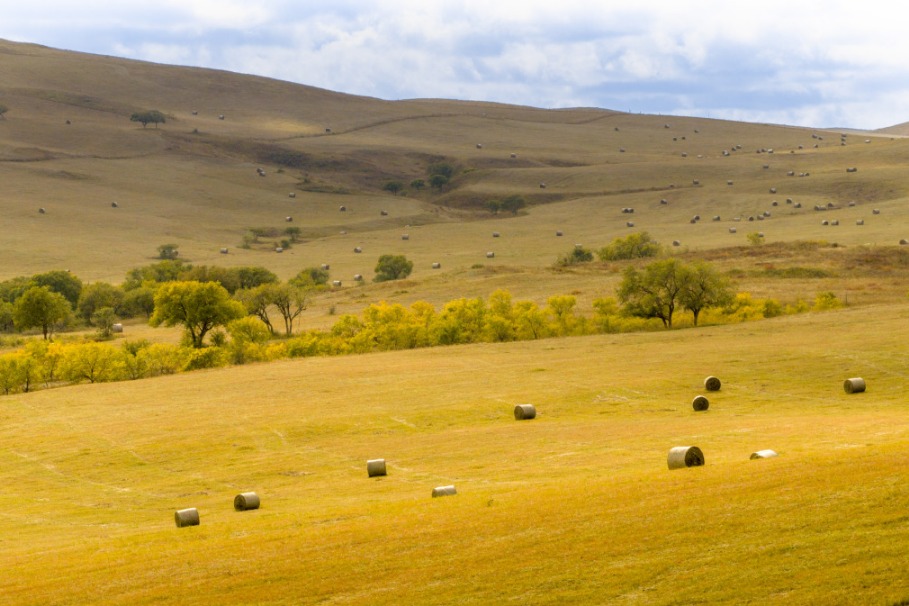Satellite tracking reveals climate change forces penguins to abandon breeding sites

An 11-year remote tracking study conducted by Sun Yat-sen University in Guangzhou, Guangdong province, has found that emperor penguins move 73 meters for every 1 C temperature increase in Antarctica. The finding was recently published in the journal Remote Sensing of Environment.
Lin Hong, a doctoral student with the University's School of Geospatial Engineering and Science and author of the study, proposed a "guano index", using satellite imagery to observe the concentration of emperor penguin droppings and track the changes in their breeding habitats over the past 11 years. The results revealed that the penguins are relocating frequently due to the impacts of climate change.
"Emperor penguins breed on the sea ice, leaving behind large, dark-colored droppings that form carpet-like stains visible from space," said Lin.
High temperatures, heavy snowfall, storms, and low sea ice concentration have a substantial impact on the duration and spatial distribution of emperor penguin habitats.
"As a result, affected colonies are pushed into more fragmented and short-lived habitats. And some breeding sites are abandoned within three years, with penguins shifting their grounds by over four kilometers," said Lin.
The researcher issued a warning: if humanity fails to take emission reduction actions, emperor penguins will need to migrate further distances to breed, making their likelihood of success gradually decrease.
Climate models project that Antarctica will warm by 1.3 C under low-emissions (with clean energy) and 4.8 C under high-emissions (with fossil fuels) by the end of the century.
The emperor penguin is listed as Near Threatened by the International Union for Conservation of Nature and faces the risk of becoming endangered in the future. Driven by human-induced climate change, their habitat is fragmenting at a quantifiable rate, according to Lin, who added that their plight is a microcosm of the challenges facing the Antarctic ecosystem and a direct consequence of sluggish global climate policy.
- Satellite tracking reveals climate change forces penguins to abandon breeding sites
- Autumn tranquility graces Xilin Gol grasslands
- China's IP progress an achievement for entire world, says WIPO chief
- 14th China International Patent Fair opens in Dalian
- Satellite ground stations enable real time use of data for navigation, disaster response
- Ruijin Hospital celebrates 118th anniversary with release of medical innovations






































